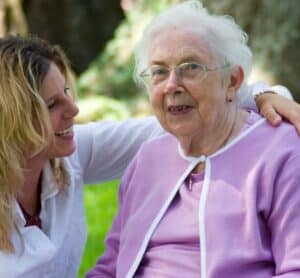
Disaster Supply Kit Checklist and Links to Local Shelters and Health Department
If Seniors Helping Seniors can help you in any way, please call (772) 492-8381
When it comes to seniors and disaster preparedness becoming prepared can be a daunting feat. Seniors can easily get overwhelmed with trying to navigate the long list of tasks associated with disaster preparedness. Seniors Helping Seniors can help seniors become disaster prepared. See below for help information for preparing seniors for disaster. Click here to find out how we can help.
GENERAL
- Two-week minimum supply of medications, regularly used medical supplies, and a list of allergies
- A list of the style, serial number, and manufacturer of required medical devices
- Batteries
- Flashlights (do not use candles)
- NOAA Weather Radio (Battery operated or hand cranked)
- Extra cash – Banks and ATMs may not be accessible or operable after a storm
- Cell phone chargers
- Books, Games, puzzles, or other activities for children
- Hygiene kit (comb, soap, toothbrush & toothpaste, toilet paper bug repellant, sanitary products, deodorant
FIRST AID
- First Aid Manual Sterile adhesive bandages of varied sizes
- Sterile gauze pads Tape (hypoallergenic adhesive if you have allergies)
- Triangular bandages Scissors
- Tweezers Sewing needle
- Moistened towelettes Antiseptic
- Disinfectant wipes Hand sanitizer
- Thermometer Tube of petroleum jelly
- Safety pins Soap
- Latex gloves Sunscreen
- Aspirin or other pain reliever Anti-diarrheal medicine
- Antacid Laxative
- Cotton balls Q-tips
- Antihistamine Anti-itch cream
IMPORTANT DOCUMENTS (all should be kept in a waterproof container)
- Insurance cards Medical records
- Banking information Credit card numbers
- Copies of Social Security cards Copies of birth and/or marriage certificates
- Car, House, office keys Copy of will
- Service animal ID, vet records, and proof of ownership
- Copies of other personal documents such as car titles, home titles, etc.
- Information regarding where you receive your medication, name of drug, and dosage.
PET CARE ITEMS
- Pet food and water to last at least seven days Pet identification and license
- Medical records, microchip information A carrier or cage
- Leash (and muzzle if needed) Water and food bowls
- Medication Supplies for your service animal
FOOD AND WATER
- Nonperishable packaged or canned food and beverages, snack foods, juices, baby food, and any specialty dietary items to last at least seven days
- Water ( one gallon per person, per day) Non-electric can opener
- Paper plates Napkins
- Plastic cups Utensils
CLOTHING
- Rain gear (jackets, hats, umbrellas, rain boots Sturdy shoes or boots and work gloves
PHONE NUMBERS
- County/local emergency management office Evacuations sites
- Doctors Banks
- Veterinarian Schools
- Friends and family Out of town contacts
VEHICLES
Be sure your vehicle is in good running order Fill cars tanks with gasoline prior to emergency
SPECIALTY NEEDS
- Means of communication
- Emergency whistle
- Emergency light
- Specialty items for infants, small children, elderly, and those with disabilities
Do you need help identifying your local shelters? Visit this link
The Florida Department of Health, in coordination with its county health departments and each local emergency management agency in the state, developed a registry for persons with special needs to register with their local emergency management agency to receive assistance during a disaster. The statewide registry provides first responders with valuable information to prepare for disasters or other emergencies. Click here to learn more.
Contact us here to find out how we can help you prepare for a disaster


